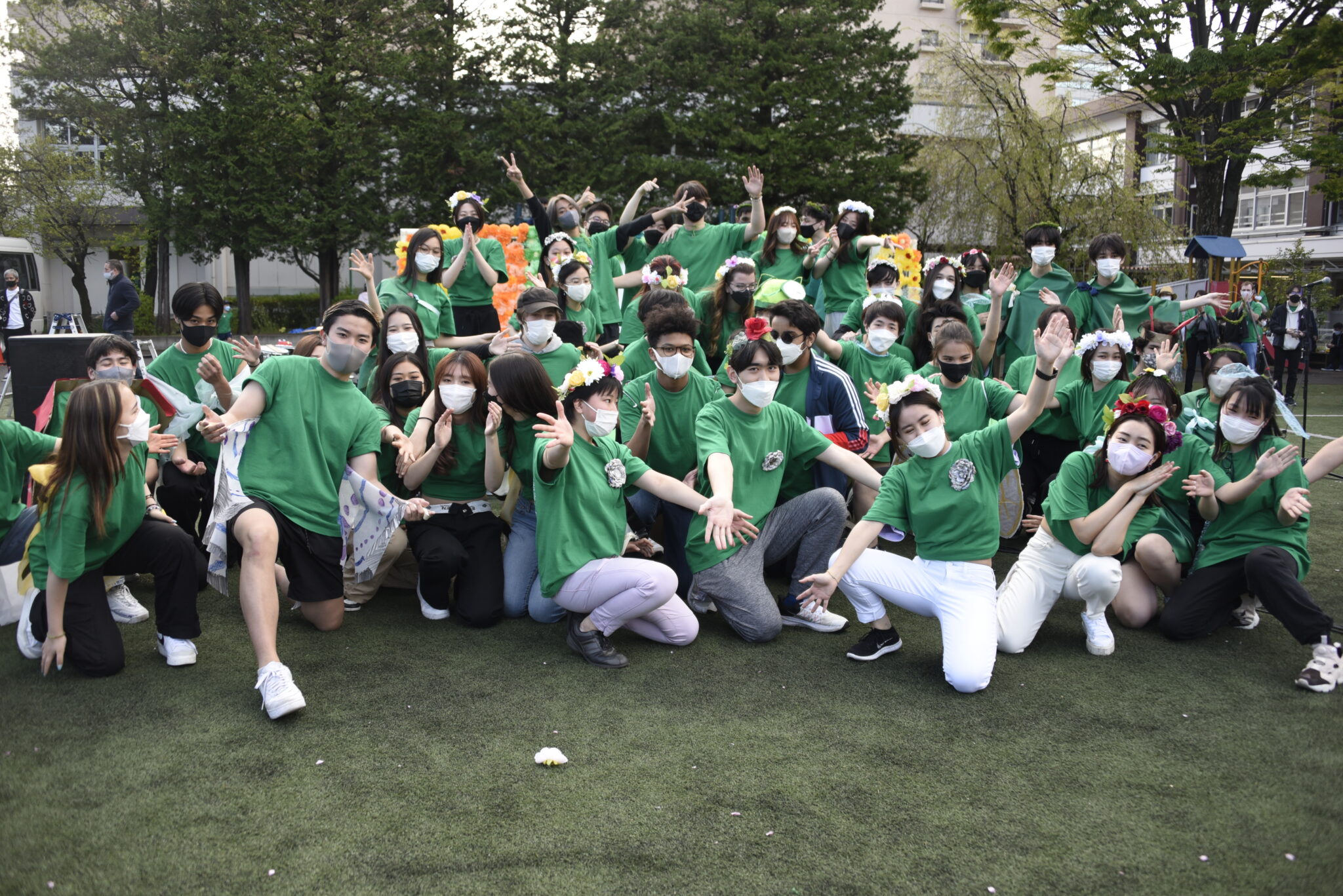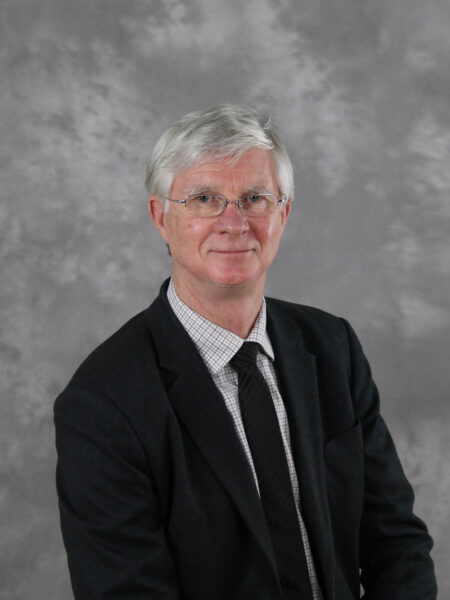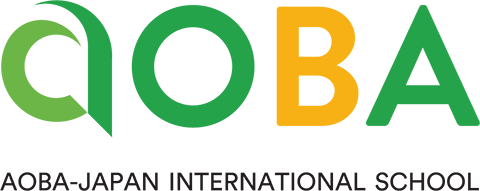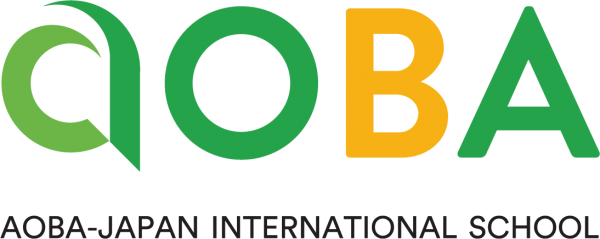
Aoba-Japan International School

2021-22 Annual Report
Message from the Group Head of School
 Throughout the 2021-2022 school year we attained a range of outstanding achievements. Although restricted by COVID, our investment of over $6m USD enabled us to complete renovations at the Hikarigaoka and Bunkyo Campuses. We revitalised school community interactions. with families attending the Spring Carnival, the G6 Celebration of Learning, and the MYP musical ‘Footloose’. Academic results continued to improve with students from the Global Leadership Diploma and the International Baccalaureate Diploma programmes accepted into top international and Japanese universities. Finally, the school has maintained a healthy financial position to ensure Aoba’s future growth and sustainability.
Throughout the 2021-2022 school year we attained a range of outstanding achievements. Although restricted by COVID, our investment of over $6m USD enabled us to complete renovations at the Hikarigaoka and Bunkyo Campuses. We revitalised school community interactions. with families attending the Spring Carnival, the G6 Celebration of Learning, and the MYP musical ‘Footloose’. Academic results continued to improve with students from the Global Leadership Diploma and the International Baccalaureate Diploma programmes accepted into top international and Japanese universities. Finally, the school has maintained a healthy financial position to ensure Aoba’s future growth and sustainability.
The content of this annual report gives examples of how we develop Global Leaders, Entrepreneurs and Innovators, Communicators, Risk Takers and Problem Solvers. In addition, we highlight our improved Facilities and provide a brief Financial report. Please take your time to browse the report to get a sense of the exceptional school year we just completed.
Yours sincerely,

Dr Ken Sell
Dip.T., B.Ed., M.Ed., PhD.

GLOBAL LEADERS
Senior School Advisory Programme
At Aoba senior school, we aim to provide a holistic education for our students not just through academic excellence but also through extracurricular activities, community service, character development and personal pursuits. Our Advisory programme focuses on providing support to students to meet their diverse needs, University advising and application, and opportunities for community service and internships.
MEXT Consortium
The MEXT Consortium office (AOBA is entrusted with the project) is engaged in activities to promote IB education in Japan, holding regional seminars and symposiums. We will continue to work with the IBO on educational activities to expand appropriate understanding of the International Baccalaureate in Japan.
Pioneering Ways to Learn with Smart Displays
Aoba-Japan International School has long been recognised as a leader in the integration of technology into education delivery. This year, the global display technology company BenQ featured Aoba in a select case study for our innovative use of interactive flat panel displays in our classrooms. Every learning space on Aoba campuses from K to 12 includes an interactive whiteboard packed full of content creation, collaboration, and interactive features. The interactive whiteboards are connected via our high speed school network, and can be used with laptops, tablets, smartphones and other devices. Students and teachers alike utilise these throughout the day as they create, share, and interact with knowledge and rich education multimedia together.
Leaders of All Ages
ENTREPRENEURS & INNOVATORS
Social Entreprenurship Project
The Social Entrepreneurship Project is led by the G10s and is a three year project. It was started this year, following the ygap methodology, as a way of empowering local entrepreneurs in the pacific islands. This year, our students learnt about SDGs, Social Entrepreneurs, and context about The Pacific Islands. We also collaborated with One Young World, which is a leading platform for young leaders all over the world. In the learning sessions, students meet with 3 social entrepreneurs from pacific islands, and solve problems that are prompted by them.
The Social Entrepreneurship Project aligns with the Aoba core value, Entrepreneurs and Innovators. Innovating is key to developing new ideas, and finding new solutions to problems that have been existing in our society for decades. Furthermore, instead of just entrepreneurship, as a global citizen, being a social entrepreneur is important for our future leaders and communities.
Our UOI Process
This year we performaned a deep dive into one of our Grade 5 units of inquiry. In doing so we created a simple and straight forward explainer video to share with our community and prospective families on the process our students and teachers take during each UOI experience.
Educational Thought Leadership
Aoba-Japan International School is recognised as a leader in educational technology and we are often asked to share our expertise and experience at both local and global education and technology events.
This years highlights include:
- Delivering a presentation at the 7th IB Consortium Symposium about how A-JIS plans and carries out digital transformation within our PYP and early years programs.
- Publishing an article in the International School Leader magazine about how Aoba recognises and provides high quality personalised learning opportunities for our students.
- Participating in an expert round table panel at the EDUtech Asia summit around the topic of ensuring access to 21st century skills development.
- Delivering a presentation at the 21st Century Learning Hong Kong education conference about the important role teachers play in creating engaging learning content and designing education journeys for their students.
- Sharing expertise on instructional strategies leveraging interactive digital whiteboard technology to a group of Japanese teachers at a Sensei no Gakkou virtual professional development event.
EFFECTIVE COMMUNICATORS
Effective GLD/IB Info Sessions
We have made improvements in effectively communicating to both parents and students the strengths of the GLD and IBDP programs.
The first improvement is the consistent design in our Information Sessions Slide Presentations across the Senior School (G10-12), thanks to our Director or Admissions and Marketing Ae Kimura.
The second improvement is that there are consistent messages from the GLD and DP coordinators, as well as Admissions and Marketing about the strengths and advantages of each program with a genuine desire to find the best choice program for each student.
GLD & DP information sessions first build on the commonalities of both programs.
The longevity and effectives of the senior school is enhanced through:
- A detailed common understanding of both programs and how they work together effectively.
- Knowing the students’ dispositions, interests, and modes of learning through admissions and coordinator student interviews, and teacher consultations.
Online 3 Way Conferences
We are celebrating learner’s reflection during the 3-way Conference! PYP learners are sharing and celebrating their learning. This year, they have also connected their learning to our school’s core values.
The process of three-way conferences provides opportunities for learners to participate in, and reflect on the assessment of their work, celebrating their achievements as well identifying areas for improvement.
As the majority of the talking is done by students, they do an incredible job reflecting on and verbalizing their reflections about their learning and themselves as learners. This way, parents get many valuable insights about their child’s learning
Celebration of Arts
Celebration of Arts at Aoba Bunkyo campus started with an opening speech by our Group Head of School, Dr Ken Sell, to welcome our guests from Bunkyo Gakuin Girls High School, G9 students from Hikarigaoka campus, and our senior school faculty and students. This evening we celebrated the G12 DP Visual Arts students accomplishment as bubbling young artists and showcased their artistic talents. Not to forget, we also had our G12 DP Film student’s self-made video in the exhibition room together with artworks from G11 Visual Arts students. G10 students’ digital photography were also showcased and presented in the form of a gallery walk along the curved walls of Bunkyo campus. To add to all the visual appeals, the evening also had the senior school students providing live music to the audience.
Spring Carnival Bunkyo Fashion Show
The Spring Carnival was the first opportunity for the whole of Bunkyo senior school students to work together and achieve a goal. This experience created a sense of belonging and community for the senior school students. The students led the fashion show, designing costumes, creating dances, and being an MC.
This aligned with Aoba’s core value, effective communicator. As the senior school was performing in front of all parents, teachers, and younger students of Aoba, they set an example of their community spirit, and teamwork. They showed their positive attitude, and brought up the energy of the spring carnival.
Universal Design For Learning
The official definition: Universal Design for Learning (UDL) is a framework to improve and optimize teaching and learning for all people based on scientific insights into how humans learn -CAST. That definition is quite technical but when you break it down it really is an approach to ensure all students have a sense of belonging, can meaningfully contribute in the classroom and feel successful in their learning. UDL is an approach to meet the needs of ALL learners. The 3 pillars of UDL are engagement, representation, action & expression.
Why: it is an evidence-based approach and current best practice. It mirrors society as it is evolving and provides an inclusive pedagogical approach for teachers to design lessons that are accessible to all students. It is a framework that works well with the IB and our Aoba inquiry cycle.
How: this year 5 teachers attended a free introductory workshop series (4 sessions). Both homeroom and support teachers attended this training. Having homeroom teachers involved in the training made for very rich conversations in grade levels planning meetings and also during our PD sessions.
Next steps: we have now established and shared with the full faculty the basics of ‘what’ UDL is. We have also shared some examples of ‘how’ to action UDL in the classroom. In order to keep momentum up, it would be valuable to get further external PD for staff to get a deeper understanding of how to action UDL throughout the school from Kinder – SS, throughout the classes – core curriculum and specialist classes and also to service the needs of students that require extension (as per feedback from our internal PD). Ongoing internal PD or a UDL learning community (such as a YETI) would also be beneficial to continue our learning.
WISE RISK TAKERS
Digital Well Being Parent Workshop
At the beginning of the school year Aoba’s Director of Innovation, Chasen Stahl, delivered a virtual workshop to parents on the topic of Digital Well Being. The workshop covered the unique role that parents play in participating in and shaping their children’s digital lives, and how the school and parents can work together to ensure children engage with technology in a healthy, responsible way which supports, rather than detracts from, other important areas of their lives.
MYP 2022 Drama Performance
MYP students collaborated throughout Semester 2 to develop a deeper understanding of various performance-based concepts and skills. The musical performance required students to develop and practice dance routines, improve their vocalization and rhythm when singing independently and as an ensemble, rehearse their acting parts together, and create set pieces and costumes. Working as an ensemble, students had to practice collaboration skills in order to successfully deliver their performances to their audiences.
University Destinations
“How can we get our child to achieve their maximum potential?” In SS at Aoba, our advisors, teachers and leaders focus on these 5 factors – Academics, Extracurricular, Community Service, Character and Personal Pursuits. In recent years, we are very proud to share that a higher percentage of our graduates, from DP and GLD programmes, have been offered places in top universities in the world. Our current cohort of 2022 has received offers from top universities in Japan, US and the UK. To support the students in their university application process, we have the University Advising Canvas course for students, advisors and families, a digital platform called BridgeU to support students to record their extracurricular activities and community service experiences in preparation for their essays and resumes and most importantly a strong advisory programme. Our Advisors through many PDs and sharing, play 3 important roles to be an effective advisor – Emotional, Cognitive and Pragmatic. These 3 roles contribute highly to the success of a student’s university application process.
Throughout the pandemic, our graduates showed remarkable resilience and dedication. Following the Aoba tradition of high academic achievement, university acceptances remain impressive (see Table 1). The University of Chicago (ranked 10 top worldwide) accepted a GLD student, while Japan’s Tohoku University, considered the top university in Japan, accepted a DP student
These outstanding academic results and university acceptances again show Aoba’s capability to provide relevant and high quality tailor-made programmes to meet the diverse needs of all our students.
Top university acceptances based on Times Higher Education rankings.
| Programme | Country | International Universities | World Ranking |
| GLD | USA | University of Chicago | 10 |
| DP | UK | University College London | 15 |
| GLD | USA | University of Michigan Ann-Arbor | 24 |
| DP | USA | University of California, San Diego | 34 |
| DP | UK | University of Manchester | 50 |
| Programme | Country | University | Ranking |
| DP | Japan | Tohoku University | 1 |
| GLD | Japan | The University of Tokyo | 2 |
| GLD | Japan | International Christian University | 11 |
| DP & GLD | Japan | Keio University | 12 |
| GLD | Japan | Waseda University | 13 |
| GLD | Japan | Sophia University | 18 |
EFFECTIVE PROBLEM SOLVERS
G10 Transition Program
In the G10 Transition Programme have been designed to allow our students to have diverse experiences, develop agency and build important skills to prepare them for a smooth transition to G11 DP and GLD programmes. The highlights of the G10 Transition programme include Transdisciplinary Unit (TDU), internships, advisory programme and subject disciplines.
CLES & SNIP Survey
This year, we scheduled surveys with teachers and students at the start, midpoint, and end of the school year. The SNIP (Snapshot in Pedagogy) survey for teachers and the CLES (Constructivist Learning Environment) survey for students are divided into five categories: Student Empowerment, Teachers as Facilitators, Teamwork, the Aoba Inquiry Cycle, and Digital Technology. The purpose of these surveys is to align teacher reflection and student feedback in regards to teacher practice.
The dashboard created to track this data allows us to view overall teacher progress, focus on a grade level or group of teachers, or view teachers individually. Coordinators are able to share individual feedback with teachers so each teacher is able to see personal growth throughout the year in addition to student feedback of the teacher’s performance. These surveys also provide administrators with areas of strength and areas for growth in regards to teaching practices at Aoba so we can plan professional development opportunities accordingly.
Staff Professional Development Session of the GLD Program
The purpose of the staff PD sessions on the GLD was to have all staff understand the strengths and advantages of the GLD programme in order to be informed about the GLD and to better advise students and parents concerning the GLD.
There were 3 PD sessions which covered the following topics:
- The founding Principles: Agency, Constructivist Theory, Student-Identity, and Student-centered Learning.
- Philosophies used to align the GLD to: espoused by Sir Ken Robinson (Three Principles on which human life flourishes) and Sugata Mitra (3 Parts to a Curriculum – The Future of Learning).
- The GLD Framework: Domains, Courses, Credits, and Additional Requirements.
- Tracking Literacy and Numeracy in the GLD.
- The process of personal inquiries in the GLD.
- Accessing Online GLD Information.
Future Staff PD on the GLD will focus on:
- The day to day process of Learning in the GLD
- Updating staff on successful student outcomes.
Gamifaction In the Classroom
Gamification seeks to engage while informing the learner by utilising flow. During our Unit of Inquiry, the Grade 5 students indulged in Mathematics learning and exploration using a range of game-based materials. This helped them to dig deeper into concepts that are sophisticated and abstract. They also used these concepts to broaden their understanding of the central idea of the unit. The gameful design of the unit has helped teachers to differentiate and enhance students’ learning outcomes.
Meguro’s Community Connection
Meguro campus has been working closely with its local community by providing food to the homeless. Every two months the children and their families collect food and bring them to the garage. Once all the food has been collected, the parents and teachers deliver them to the Sugekari Center. Sugekari Center will categorize the food and distribute them to the different parts of the community.
Please let me know if a longer blurb is needed. If so, then I will add a longer description and discuss what the children are learning about with the Food Drive.
Partnerships Key to Success
In many ways Aoba is made up of a network of groups. The connections both in and outside the school propel each individual group to be more potent than they would be on their own. We are always pursuing new and connections and improving our partnerships to expand our reach and allow us to teach in more effefective and interesting ways.
Substantial Improvements to our Facilities
Hikarigaoka Renovations
We completed the extensive renovations to the Hikarigaoka campus this year, bringing the second and third floors to the same specifications as the first floor we completed last year. This has unified the feeling and flow throughout the rooms and hallways, something we leveraged in one of the biggest projects, moving to a distributed library model, in which the books are located along the halls on the upper floors as well as in the two first floor entrances, ensuring appropriately levelled reading materials are as close as possible to the students. Combined with an intentionally open-flow design between the classrooms achieved by removing the fourth wall that once separated the hallways from the rooms, it has been very rewarding to watch the students and teachers begin to utilise the learning spaces more flexibly. We have also added an audio/video recording studio, complete with studio lights, industry standard audio monitors, mics, and more, and high-end VR stations in several classrooms throughout the building, providing students with the opportunity and tools necessary to become original content creators.
Bunkyo Campus Opening and Renovation
Moving our senior school to its new home in Bunkyo Ward has certainly been the largest undertaking of the year. We sought to create a flagship senior campus that was aligned with the foundational principles Aoba has consistently referenced whenever developing programs K-12. We have designed a series of spaces that facilitate team-based inquiry, a shift from consumption of information to the creation of original intellectual property, and reflect the sorts of environments that our students are likely to encounter both in university and in the workplace. We employ industry standard high-speed internet throughout the building, a number of flexible learning spaces, and have a series of specialised spaces including a black box theatre, a set of recording studios, and an exhibition room with a video wall. In addition to the spaces, the building is furnished with a robust suite of analogue and digital tools to enable our students’ creativity to flourish.
Digital Facilities Growth
In addition to the physical spaces we have renovated, we have also replaced our previous Student Information System (SIS), Engage, with a more powerful, intuitive platform, Veracross. This features a streamlined online admissions system and parent portal, with a larger worldwide user base, ensuring higher system performance. We have also greatly expanded the unit offerings on Canvas, our bespoke Learning Management System (LMS), which has allowed us to better operate classes in a blended environment. This has been particularly effective during the transition to the Bunkyo campus under COVID conditions.
Financial and Strategic Reports
During the 2021 fiscal year, A-JIS achieved 1.6 billion JPY total revenue due to continuous increase in enrollment. In addition to the initial fees of 5 percent, tuition-related fees including facilities fee, comprised 80percent of total revenues. In total, enrollment-related income constitutes 90 percent of total revenues. Other revenues such as lunch, school bus and after school activities accounted for 10 percent, which is an increase in comparison to the previous years due to the reopening of extra-curricular activities.
In our efforts to provide high-quality education, A-JIS has employed 90 teachers (student-teacher ratio 6.7) for homeroom, special subjects, support programs and others. Salaries and benefits represented 65 percent of total cost of sales which contributed to hiring and training professional and experienced teachers.
Investment in education and the school environment including educational material purchases, professional development, membership fees, rent and leases, accounted for 25 percent.This includes a large investment in the second stage of Hikarigaoka Campus renovation and a full renovation of the new Bunkyo Campus.

